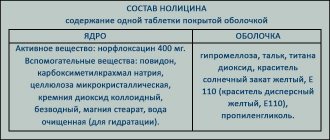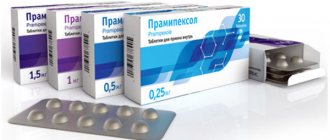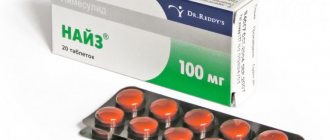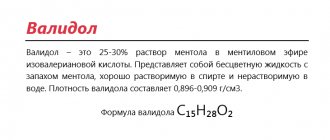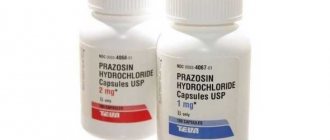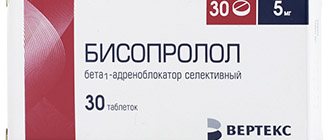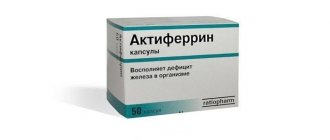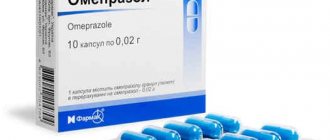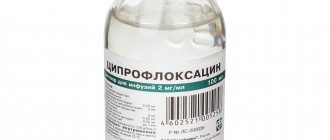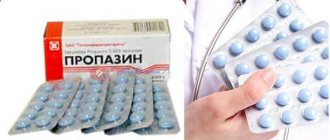In the modern world, there are a huge number of pathogenic microorganisms that can cause infectious diseases of various types. The causative agents of the disease differ from each other in type, spectrum of action, intensity of the therapeutic effect, and ability to mutate. Therefore, work in pharmaceutical laboratories does not stop and every year new and, most importantly, drugs that have a less toxic effect on the body are developed.
Pharmacological properties
Pharmacodynamics
Monural has a bactericidal effect.
The active substance of the drug, fosfomycin trometamol, is one of the broad-spectrum antibiotics derived from phosphonic acid. The mechanism of its action is associated with the suppression of the first stage of bacterial cell wall synthesis.
As a structural analogue of phosphoenol, pyruvate enters into a competitive interaction with the enzyme N-acetyl-glucosamino-3-o-enolpyruvyl transferase. Due to this, irreversible, specific and selective inhibition of this enzyme is observed, which ensures the absence of cross-resistance with other classes of antibacterial agents and the possibility of synergy (synergy is noted with cephalexin, amoxicillin, pipemidic acid).
Shows activity against most gram-positive and gram-negative microorganisms: Morganella morganii, Serratia spp., Pseudomonas spp., Enterococcus spp., Enterococcus faecalis, Staphylococcus aureus, Staphylococcus saprophyticus, Staphylococcus spp., Proteus mirabilis, Escherichia coli, Citrobacter spp., Enterobacter spp., Klebsiella pneumoniae, Klebsiella spp.
Fosfomycin also helps reduce the adhesion of a number of bacteria to the epithelium of the urinary tract.
Pharmacokinetics
Trometamol fosfomycin after oral administration is rapidly absorbed from the gastrointestinal tract. With a single dose of 3000 mg of the substance, bioavailability ranges from 34 to 65%. The time to reach Cmax (maximum concentration), which in plasma is 22–32 mcg/ml, varies from 2 to 2.5 hours.
Trometamol does not bind to plasma proteins of fosfomycin, dissociates in the body into trometamol and fosfomycin, and is not subsequently metabolized. Accumulates mainly in urine. When taking a single dose above 3000 mg, a high concentration is observed in the urine (1053–4415 mg/l), for most common pathogens of urinary tract infections it is 99% bactericidal. MIC (minimum inhibitory concentration) -128 mg/l, is maintained in urine for 24-48 hours, which allows for a single-dose course of treatment.
T1/2 (half-life) from plasma is 4 hours. It is excreted unchanged by the kidneys (up to 95%), while high concentrations are created in the urine. Approximately 5% is excreted in bile.
With a moderate decrease in renal function, including its physiological decline in elderly patients, T1/2 of fosfomycin is slightly prolonged, while its concentration in urine remains at a therapeutic level.
Monural
Monural is an original Swiss broad-spectrum antibiotic based on the substance fosfomycin trometamol. The drug has a bactericidal effect associated with the suppression of the initial stage of cell wall synthesis of microorganisms sensitive to it. Another useful property of monural is anti-adhesive: it does not allow bacteria to stick to the epithelium of the genitourinary tract, thereby interfering with their bloodthirsty plans to seize new territories. The drug prevents most gram-positive bacteria from existing peacefully in the human body, including representatives of pathogenic and opportunistic microflora such as Staphylococcus aureus, Staphylococcus saprophyticus, Enterococcus spp., Enterococcus faecalis. Monural does not remain indifferent to gram-negative microorganisms: Klebsiella pneumoniae, Morganella morganii, Escherichia coli, Citrobacter spp., Klebsiella spp., Proteus mirabilis, Enterobacter spp., Pseudomonas spp., Serratia spp. Monural is used mainly for urinary tract infections: cystitis, urethritis in various variations and clinical and therapeutic circumstances.
Monural, unlike domestic fosfomycin, is produced not in parenteral, but in oral form, or more precisely, in granules for preparing a solution for oral administration.
Before taking Monural, the bladder and digestive tract should, if possible, be empty. The frequency of taking the drug is 1 time per day, the recommended dose is 1 three-gram packet two hours before or after a meal, optimally before going to bed. Children over 5 years old take 2 g of the drug per day. As part of antibacterial therapy, only one dose of monural is provided, that is, the course of treatment is only 1 day. In more severe cases (persistent infections with a tendency to recur or the patient’s advanced age), it is allowed to take another package of monural a day after taking the first one. In order to prevent infection in the urinary tract during transurethral diagnostic procedures or surgery, take 1 packet of the drug 3 hours before the intervention and another 1 packet 1 day after the first dose. If the patient has a history of renal failure, the dose should be adequately reduced and/or the time interval between doses of the drug should be increased.
Instructions for use of Monural: method and dosage
Monural is taken orally, dissolved in 1/3 glass of water, on an empty stomach - 2 hours before or after a meal (preferably in the evening before bed), after emptying the bladder.
Adults are usually prescribed a single dose of 3 g of the drug in one dose. When treating severe or recurrent infections, as well as in elderly patients, Monural may need to be re-administered after 24 hours at the same dose.
To prevent urinary tract infections during diagnostic transurethral procedures and surgical interventions, 3 g of the drug is prescribed 3 hours before and 24 hours after the first dose.
For children over 5 years of age, Monural is prescribed only once at a dose of 2 g.
Patients with renal failure should reduce the dose and increase the interval between doses of the drug.
Special instructions for the use of the drug Monural
Simultaneous food intake slows down the absorption of Monural. Patients with diabetes should take into account that 1 package of Monural contains 2.213 g of sucrose. A transient increase in the activity of liver transaminases is possible. During pregnancy and breastfeeding. Use during pregnancy and lactation is possible only for health reasons or if the expected effect of therapy for the mother exceeds the potential risk for the fetus. Adequate and strictly controlled studies regarding use during pregnancy have not been conducted. Therefore, the ability of fosfomycin to cross the placenta must be taken into account. During the period of treatment, the mother should stop breastfeeding.
Indications for use
Monural has been used for a long time in many clinics in the country and abroad for the treatment of urological pathology. And it should be noted that there is no increase in resistance to fosfomycin in different types of bacterial microorganisms. Convenient to use.
Widely used in medical practice to combat infections of the urinary and reproductive systems, namely:
- It is often used to treat acute and chronic cystitis of bacterial origin and, at the same time, produces good results in a short time.
- An effective cure is achieved for such a pathology as post-traumatic cystitis with a chronic course and the presence of microbes in the urine.
- It is recommended to carry out a course of medication when treating expectant mothers for a condition characterized by the presence of colonies of bacteria in the urine (bacteriuria).
- Monural is often practiced to treat inflammation of the bladder in pregnant women.
- This drug has a good therapeutic effect for bacterial nonspecific urethritis.
- Postoperative infections of the genitourinary system of bacterial origin are another aspect of the prescription of this medication.
- A bactericidal antibiotic is also used for prophylactic purposes during certain surgical interventions and diagnostic methods for examining the urinary system.
A wide range of indications for the use of Monural indicates the high effectiveness of this drug.
How to take Monural for cystitis
The drug is quickly absorbed when it enters the gastrointestinal tract. In the body, it breaks down into trometamol and fosfomycin, the latter having the main therapeutic effect. The maximum concentration of the active substance is reached after 2 hours.
The use of Monural allows you to achieve a stable effect for a long time. In high concentrations, the drug is contained in the bladder for one to two days.
Monural can be taken for the treatment of cystitis in pregnant women if the potential benefits for the mother significantly outweigh the risks for the fetus. If a woman is breastfeeding, then you can drink Monural for cystitis provided that lactation stops.
Monural is effective for cystitis and in elderly patients. It is necessary to take Monural twice, especially if treatment with Monural is necessary for chronic cystitis, then the second package should be taken a day after the first dose. If patients have renal failure, the drug is prescribed in the same dosage, but the intervals between doses of the medication are extended.
How often can you drink Monural for cystitis?
The dosage of Monural for cystitis is prescribed by a doctor, but usually it is not large volumes. One tablet of Monural for cystitis 3 g or a packet is dissolved in a small amount of water (approximately 60-90 ml), and this liquid is taken once, on an empty stomach. It is best to take the medicine after meals or two hours before meals. Doctors recommend taking Monural tablets for cystitis once, before going to bed, and first emptying the bladder in order to achieve a high concentration of the drug.
Monural dosage regimens change if the patient undergoes surgery or instrumental diagnostic testing. In this case, for the purpose of prevention, Monural tablets for cystitis 3 g are taken twice - one three hours before the procedure, and the second one a day after it.
The drug can be used not only in adults; Monural can be prescribed to children with cystitis from the age of five in a dosage of 2 g. As in adults, you can take Monural for cystitis only once - this is enough for the medicine to have a positive effect on the body.
How quickly does Monural act for cystitis?
Monural is a fast-acting cure for cystitis. You can get the first positive results from treatment already in the first days of treatment for the disease, so doctors often prescribe it for acute forms of the disease. Monural acts quickly for cystitis due to the peculiarities of pharmacokinetics - the drug is able to give the highest concentration within two hours.
Monural helps quickly with cystitis, since it accumulates mainly in the bladder and maintains a high concentration for two days. This time period is enough to cope with the main pathogenic microorganisms that inhabit the bladder and cause inflammation of its walls. Patients who have taken the drug leave positive reviews of Monural for cystitis - due to the peculiarities of its action, the drug relieves patients of the disease in a matter of days.
data-full-width-responsive=”true”
Video playlist about cystitis (video selection in the upper right corner)
Treatment of cystitis with Monural
To treat cystitis, doctors primarily rely on antibacterial drugs. Antibiotics for cystitis have been used for a long time, but the question has always remained about the most effective drug for cystitis. Treatment of cystitis with Monural has shown that the drug has a detrimental effect on the pathogenic microflora inhabiting the bladder and promotes its rapid death and removal from the organ.
The drug Monural is produced by the Swiss pharmaceutical company Zambon. The main active ingredient is fosfomycin, a phosphonic acid derivative. It is a broad-spectrum antibiotic; it is mainly used to treat acute cystitis, because the drug works well against pathogens. A distinctive feature of fosfomycin is its speed of action compared to the active components of other medications.
